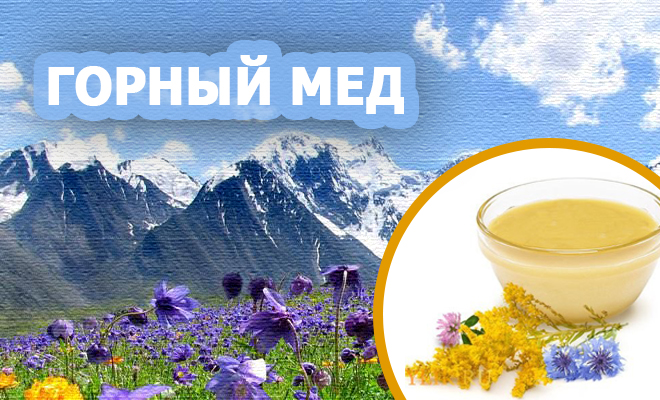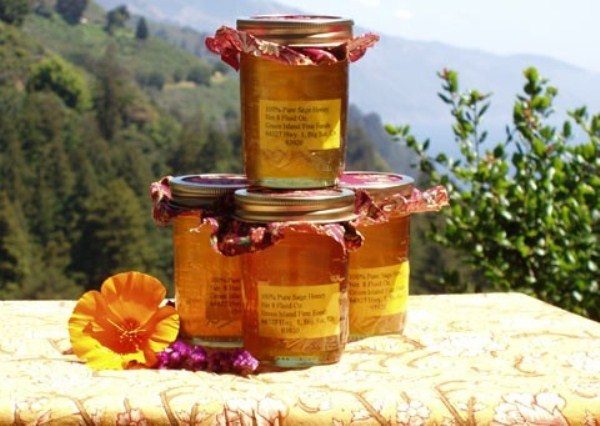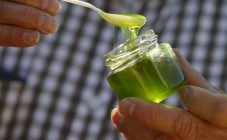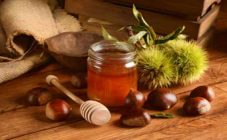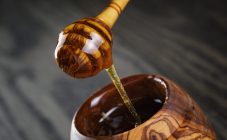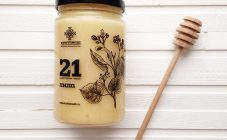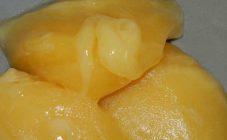Content:
Mountain honey is the most demanded result of beekeeping. Real mountain honey has truly healing properties, it includes an incredible amount of valuable substances and elements. The benefits of the product have been known for a long time, they are used in folk and traditional medicine.
Honey is obtained from herbs, honey plants in this case from 3 to 6, or even more. Herbs, trees, shrubs (lemon balm, hawthorn, thyme, acacia, bird cherry, wild rose) serve as honey plants.
Alpine honey bees collect from flowering plants that grow exclusively in mountainous areas. Alpine honey is especially distinguished, which, in addition to its subtle aroma, has a unique treasure box of useful properties (treatment of atherosclerosis, liver and stomach diseases). It is worth mentioning Mountain Tien Shan, whose honey is especially useful for eye diseases, gynecological problems, gastritis and stomach ulcers. Tien Shan honey has a pleasant soft taste and a pronounced floral aroma.
Plants of high mountains, growing far from chemical accumulations, gases, harmful substances, are environmentally friendly, useful and natural (some honey plants grow at an altitude of more than 2000 meters). Honey collection begins in spring.
Mountain honey taste and color
Depending on the location of the mountains, the height and the plants growing there, the color, taste and consistency of mountain honey can differ significantly. The only thing is a honey aroma - unrealistically delicate, richly fruity, floral, it certainly becomes an attribute of any variety.
Main characteristics of honey:
- the color of honey can be colorless, white, milky, light yellow, dark yellow, golden, straw and even brown;
- the aroma is bright, rich, the smell of one, specific flower, in most cases hawthorn, prevails;
- the consistency is quite thick, viscous, honey crystallizes quickly, a liquid product is most likely a fake;
- the taste is tart, richly sweet, slightly sugary, with a pronounced, but very appropriate bitterness and astringency;
- the transparency of the product is an indicator of freshness.
Montenegrin variety is distinguished by slow crystallization (sugaring).
Composition of mountain honey
Mountain honey is a complex of trace elements and nutrients derived from the nectar of wild plants and pollen.
Composition: proteins (0.5%), carbohydrates (72%), fructose (39%), glucose (36%), water, polysaccharides, ash, organic matter and sucrose. There are no fats in the composition.
And also vitamins of group B, C, E, nicotinic acid, biotin, enzymes, mineral compounds: Fe, Ca, K, P, F, Ni, Cu, etc.
Calorie content - 290 kilocalories per 100 g.
Beneficial features
It has soothing, antiseptic, tonic and anti-inflammatory properties. Recommended for cystitis, conjunctivitis, colds, normalizes metabolic processes in the body, removes toxins and toxins.
Mountain honey is sold in small quantities, which makes it even more valuable.
Mountain honey, thanks to its unique qualities:
- guarantees the correct functioning of the digestive tract;
- destroys pathogenic microorganisms;
- promotes the process of tissue regeneration;
- suppresses inflammation in the bronchi and throat;
- fights insomnia;
- prevents stress, neuroses;
- fights anemia;
- increases the body's defenses;
- improves the work of the cardiovascular system;
- for diabetics serves as a sugar substitute.
The pharmacological effect of honey is explained by the content of biocatalysts and phytoncides. Each, separately taken microelement, and there are at least 30 of them in honey, has a certain positive effect on the human body. For example, iron is required for the bone marrow to function properly, and magnesium supports the nervous system.
By the way, doctors recommend not to swallow honey immediately, but to let it gradually dissolve in the mouth, since the organic acids that make up its composition have a beneficial effect on the processes of juice and bile secretion (in particular, with cholecystitis).
Contraindications and harm
Honey is a delicacy loved by both adults and children, they use it in its natural form and as an additive (baked goods, cereals), with a cold there can be nothing better than a cup of hot milk with honey. But this tasty treat has its own contraindications.
Mountain honey is contraindicated for:
- individual intolerance to beekeeping products;
- pollen allergies;
- under the age of 5-6 years, since children have insufficiently developed liver functions.
It is advised to take with caution to pregnant and insulin-dependent women (no more than 40 g per day)
When used no more than 100 g per day and in the absence of contraindications, honey practically does not harm, with the exception of a few nuances:
- Ö favors the development of caries, and much faster than regular sugar or candy, to prevent which doctors recommend thorough rinsing the mouth with water after each use;
- Ö honey eaten on an empty stomach activates the entire digestive system, and if you do not eat for half an hour, insulin begins to be produced rapidly, which has a very negative effect on health.
Mountain linden honey
Linden mountain honey bees produce from the nectar of linden flowers, which is called the queen of melliferous plants, due to its high melliferous qualities.
Characteristics of real linden honey:
- color - almost colorless, in rare cases slightly yellowish;
- the consistency is thick, honey will be sugared by autumn;
- the taste is subtle, pleasant; a product with bitterness is either of poor quality or a fake.
Mountain linden honey, in addition to its velvety taste, has many useful qualities: it perfectly fights against fever, viral infections, and tones the body. Linden honey is indispensable in the treatment of inflammatory processes of the respiratory tract, kidneys, with purulent wounds, burns. It is a natural expectorant and helps with dry coughs.
Storage conditions
Fast crystallization is a significant disadvantage of honey, however, this does not affect the beneficial qualities in any way. Store honey in glass containers.
The optimum storage temperature is + 5-7 degrees. Its decrease to minus 30 and an increase to 40 degrees negatively affects the properties of mountain honey.
Open storage increases the risk of acidification, especially at high humidity (over 60%).
When stored properly, honey does not deteriorate and retains its useful qualities for a large number of years.
High-quality mountain honey can replace a whole arsenal of medicines in the off-season, when colds and viral diseases are regularly plagued. This is a unique product, the effectiveness of which is not denied by either traditional or official medicine.
